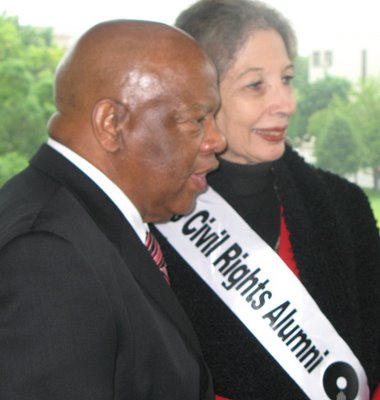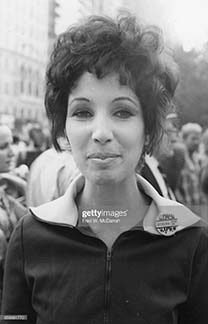Lucy Komisar’s beat is the secret underbelly of the global financial system — offshore bank and corporate secrecy — and its links to corporate crime; tax evasion by the corporations and the very rich; empowerment of dictators and oligarchs; bribery and corruption; drug and arms trafficking; and terrorism.
Her dozens of articles on the subject since 1997 have appeared in publications as diverse as The Nation magazine and the Wall Street Journal.
She was winner of 2010 Gerald Loeb, National Press Club, Sigma Delta Chi, and National Headliner awards for her exposé of Ponzi-schemer Allen Stanford, which she brought to the Miami Herald. The Loeb award is the country’s most prestigious prize for financial journalism. Here’s the story.
She is also a theater critic and member of The Drama Desk, the organization of New York theater critics, writers and editors. Her particular interest is the political aspects of theater.
Lucy’s page on Wikipedia
Lucy’s interviews and programs on YouTube

Lucy from Sept 1962 to Aug 1963 edited the Mississippi Free Press; follow links to all the issues. Her work for civil rights is described in a book on the 1960s movement, “We Are Not Afraid.” And in the University of Southern Mississippi archive.
We Believed We Were Immortal, a book published in 2017 by Kathleen W. Wickham, a professor of journalism at the University of Mississippi, about journalists working in Mississippi during civil rights movement, features a section on Lucy.
In 2009 she was one of the Queens College 1960s civil rights activists honored at a commencement address by Congressman John Lewis.
Clayborne Carson, Stanford University Professor of History, entrusted by Coretta Scott King to edit and publish the papers of Dr. Martin Luther King Jr., cites “Lucy’s Komisar’s Mississippi Free Press alongside the SNCC’s Student Voice” as those journals that lit his awareness during the battle for black civil rights, especially in America’s Deep South.

He says: “My understanding of SNCC was also affected by a long conversation at the [National Student Association] conference with Lucy Komisar, the young white woman who edited the Mississippi Free Press. Lucy patiently explained the crucial, yet largely ignored, battles over black voting rights taking place in Mississippi. She told me about Bob Moses, a former high school math teacher from New York, who had initiated SNCC’s voter registration efforts in the state, and about the 1961 killing of civil rights advocate Herbert Lee by a white Mississippi legislator who was quickly exonerated by an all-white coroner’s jury. Lucy even took the time to teach me some freedom songs.”
He says “the account in my memoir, Martin’s Dream, reveals its importance to a 19-year-old black kid who had grown up in New Mexico and for whom attending the march [on Washington 1963] was the beginning of an activist career.”
In 1970-71, Lucy was a national vice president of the National Organization for Women. A major NOW accomplishment she organized was getting the government to adopt goals and timetables for hiring women by federal contractors and by radio & TV stations regulated by the FCC.
Most women who got jobs in radio & TV don’t know anything about that! She once met a woman who told her that when she got hired at a small station, she was told it was because of a new regulation. You’re welcome!
On a lighter note, see her ask a pointed question to Germaine Greer that was aimed at her co-panelist, sexist writer Norman Mailer, in an event in April 1971. It was captured in this documentary, “Town Bloody Hall,” by the filmmakers Hegedus and Pennebaker. Go to 59 minutes in.
In 1972, on a trip to Paris, she organized the first feminist group in France. See report in NYTimes. She put an ad in the International Herald Tribune inviting expats to a meeting at the American Library, but many French women saw the ad and came to the event. The result was French and expat feminist groups.
In the 80s and 90s, she wrote about movements for democracy against repression. This story in the Washington Post tells how she was harassed by agents of Mobutu in Zaire — and saved by the U.S. consul.
On the issue of offshore financial corruption she is the author of BCCI’s Double Game: Banking on America, Banking on Jihad. in A Game As Old As Empire, (Berrett-Koehler, San Francisco, 2007). See this.
She has written books on the feminist movement (The New Feminism), the history of American welfare (Down and Out in the U.S.A), and Corazon Aquino (Corazon Aquino: The Story of a Revolution).
Her investigation of conman William Browder and his invented Magnitsky hoax has exposed the Russophobic corruption of the U.S. government and most American media.
She is a past John Simon Guggenheim fellow and John D. and Catherine T. MacArthur Foundation grantee.
“Civilization is not destroyed by wicked people; it is not necessary that people be wicked but only that they be spineless.” – James Baldwin.
“When exposing a crime is treated as committing a crime, you are being ruled by criminals.” — Edward Snowden
George Orwell is said to have remarked, “Journalism is printing what someone else does not want printed; everything else is public relations.”


Pingback: Matt Ehret interviews Lucy on the Browder hoax : The Komisar Scoop